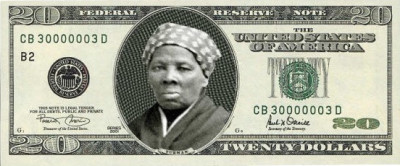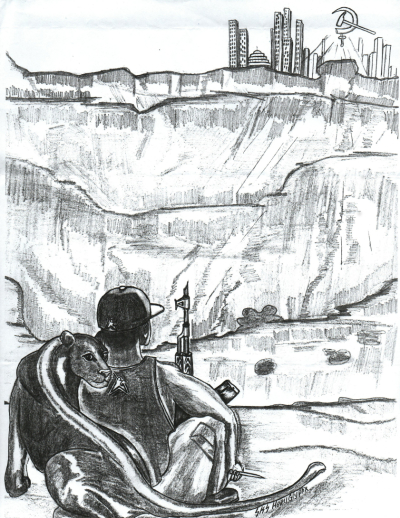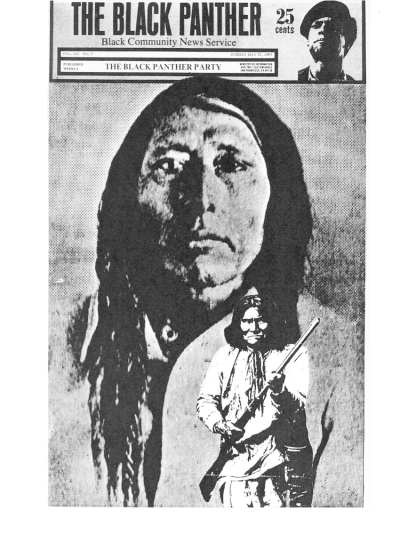
Harriet Tubman's Image Whitewashed on $20 Bill

In April the U.$. Treasury announced that Harriet Tubman will replace former President Andrew Jackson on the front of the $20 bill. But not to leave Jackson out entirely, they said ey will be moved to the back side of the bill, along with the image of the White House. The treasury also announced that the back of the $10 bill will be redesigned to feature leaders of the movement to gain wimmin the right to vote, while Alexander Hamilton will remain on the front of that bill. And the back of the $5 bill will change to incorporate historic moments that took place at the Lincoln Memorial. These design changes will be announced by 2020, so we can’t expect to see any new currency for a few years.
There was much debate about making changes to the U.$. currency, with many people calling for incorporation of at least one womyn after a history of only men featured on the bills. Yet the bills are actually a good representation of Amerikan capitalism and we see the incorporation of wimmin on this currency similar to the incorporation of wimmin in the military. It is not a feminist victory to gain greater representation in the most destructive imperialist power in the world. This will not eliminate the patriarchy or gender oppression. Nonetheless, the selection of a former slave for the $20 bill and suffragettes for the $10 bill is interesting because many in the suffragette movement opportunistically played to white nationalism, arguing to white men that they needed to give white wimmin the right to vote to balance out the potential political power of Black voters.(1)
Harriet Tubman was born a slave in 1820 and escaped to Philadelphia in 1849, subsequently devoting eir life to fighting slavery and guiding other slaves to freedom. Tubman died in poverty in 1913. Ey was a fierce New Afrikan guerilla who played an important historical role in defense of the evolving New Afrikan nation.(2) Tubman was such an important figure that eir existence has to be acknowledged by the dominant Amerikan nation. Yet, as in the decision to put Tubman’s image on U.$. currency, Amerikkka tries to whitewash the details of Tubman’s life and claim em as a hero of this imperialist country.
Ironically, the flip side of the $20 bill will continue to celebrate former President Andrew Jackson, a slave holder who died just a few years before Tubman escaped to freedom. President Jackson, along with the U.$. Congress at that time, was a strong supporter of slavery, basically refusing to take up any proposals that would abolish slavery. Further, Jackson supported mobs and postal workers intercepting abolitionist anti-slavery organizing, referring to these actions as “wicked attempts” to incite slave rebellion.(2) In eir home life, Andrew Jackson built up the Hermitage Plantation, primarily growing cotton, with the labor of slaves. It is estimated that Jackson grew this plantation from a 9-slave operation to over 150 slaves by 1820.
Jackson’s legacy of support for national oppression went beyond supporting slavery. Ey was a military leader in the fight against First Nations in the early 1800s. Later, as President, Jackson signed the Indian Removal Act in 1830, forcibly removing several indigenous nations from their lands. The forced relocations, known as the Trail of Tears, led to 46,000 indigenous people relocated during Jackson’s term, many of whom died from disease and starvation on the way to the destination.
While sprinkled with anarchist tendencies typical to the author, we recommend Butch Lee’s biography of Tubman to people interested in the true history of this revolutionary activist.(3) If the growing New Afrikan defense movement accepts Tubman on the $20 as a positive step, then the ideological war for Tubman is being lost and more integration is the order of the day. More integration with Amerikkka is in direct opposition to the well-being of the majority of the world’s people who suffer under imperialism, including New Afrikans.
Changing the faces on Amerikan currency won’t change the reality of Amerikan imperialism. But the willingness of the Amerikan government to do this does reflect the extent to which integrationism is being used to keep the oppressed internal nations loyal to the empire. Yet cultural integration does nothing to address the fundamental national oppression that keeps imperialism extracting wealth from oppressed nations in the Third World. These people who generate wealth for Amerikan imperialism can never expect to see their faces on the money that is coming from their labor. This just reinforces the divide between First World and Third World, which will likely result in a very difficult transition from capitalism to socialism for First World peoples. Giving up the wealth of hundreds of years of plunder, and re-integrating into global society as productive human beings will be a long and difficult task for First World bourgeois and petty bourgeois people. We fully anticipate a long period of dictatorship over the First World by the Third World, enforcing a hard fought cultural revolution of re-education for the First World peoples.










